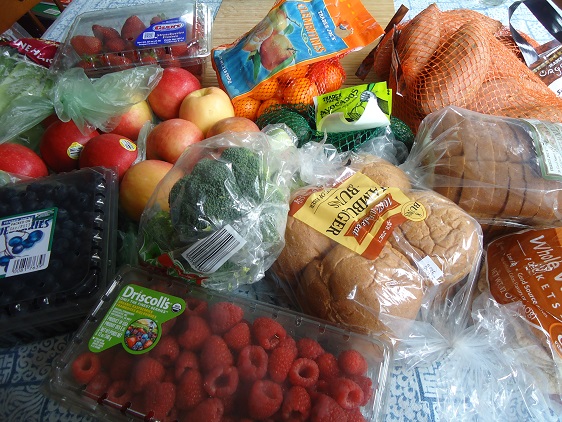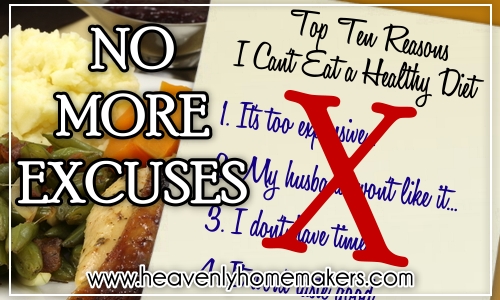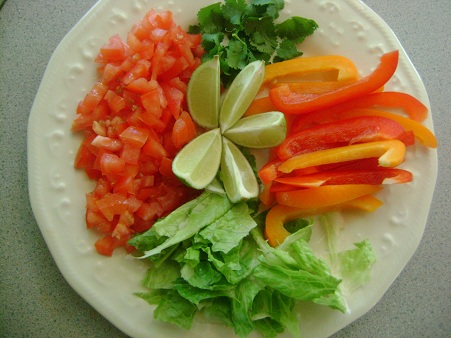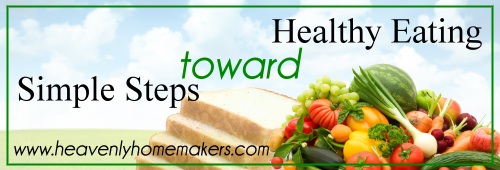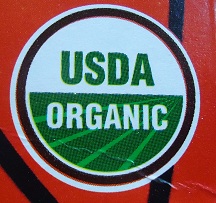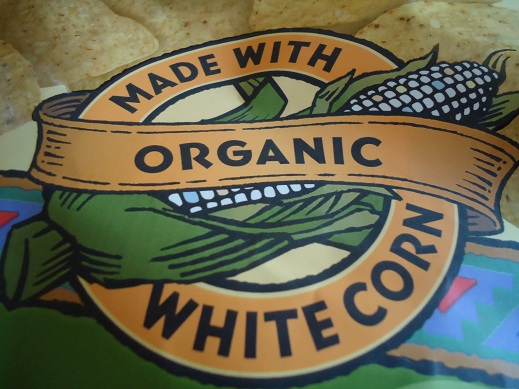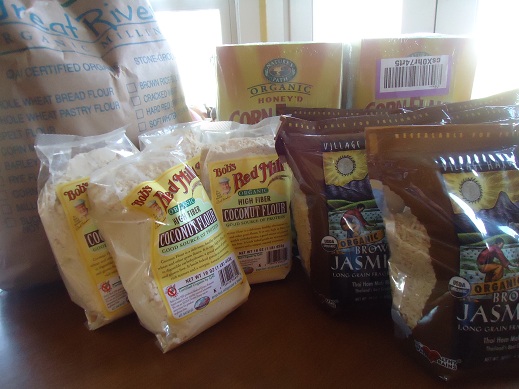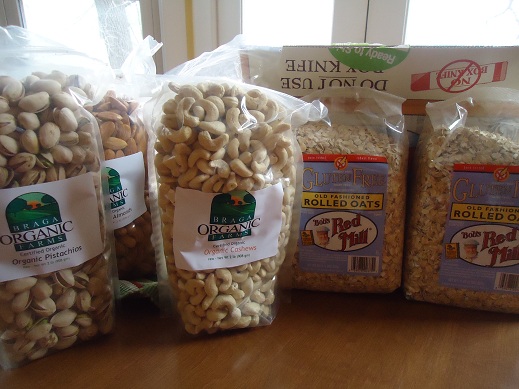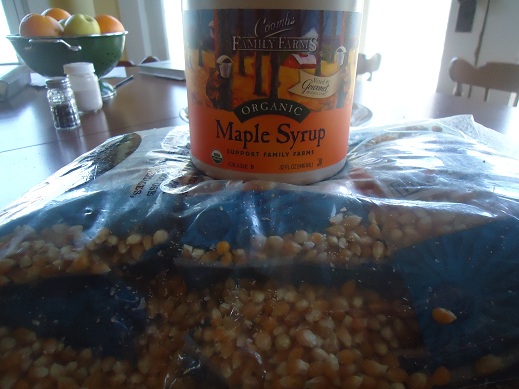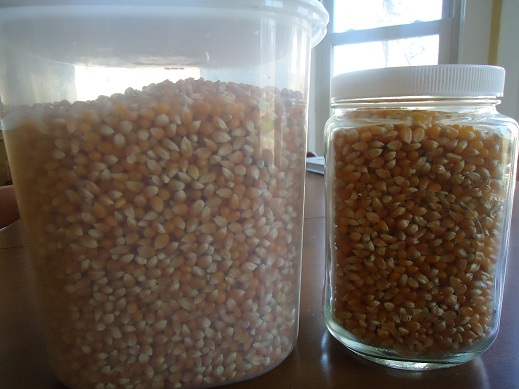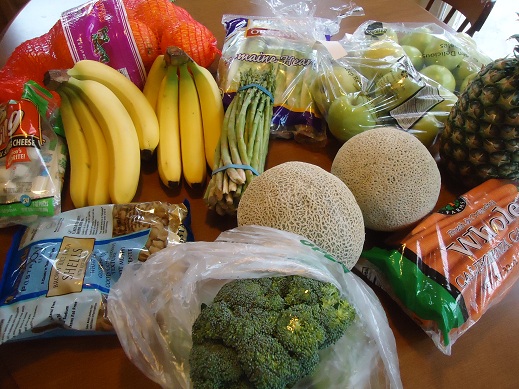Several have asked, so here’s the answer to: Do I still buy organic food?
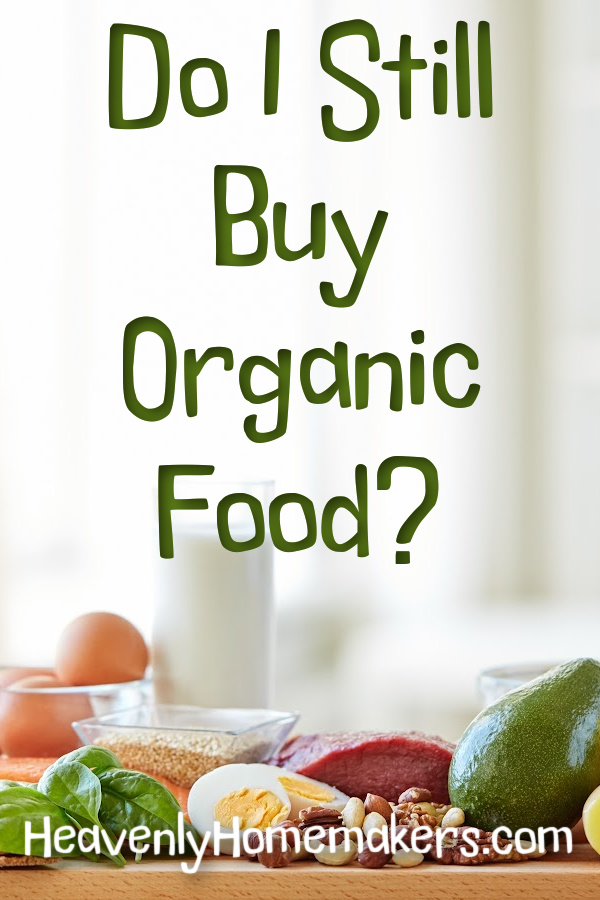
Does it help answer the immediate question if I first admit that every time I go to Costco I buy a bag of frozen nuggets and a few boxes of frozen pizza?
I spy corn dogs in this Sam’s cart:
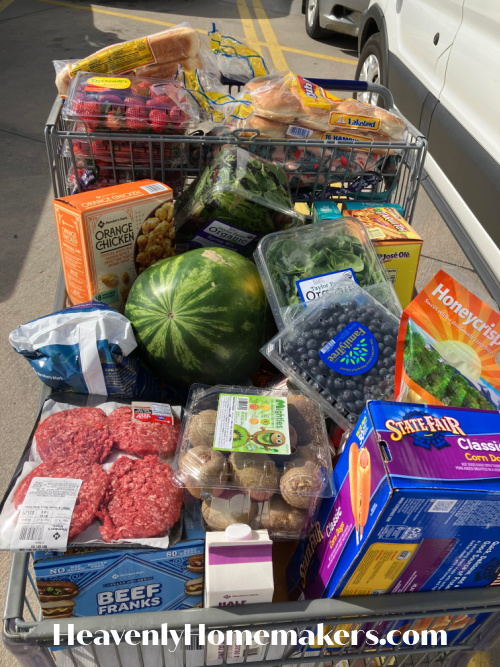
But also organic greens in this one:
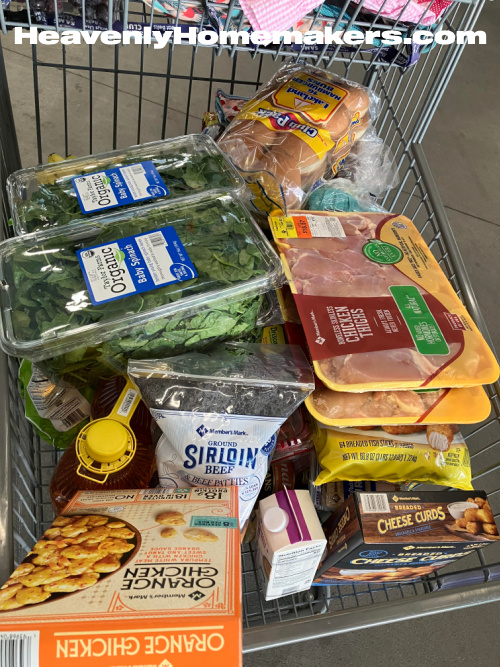
Organic frozen veggies here:
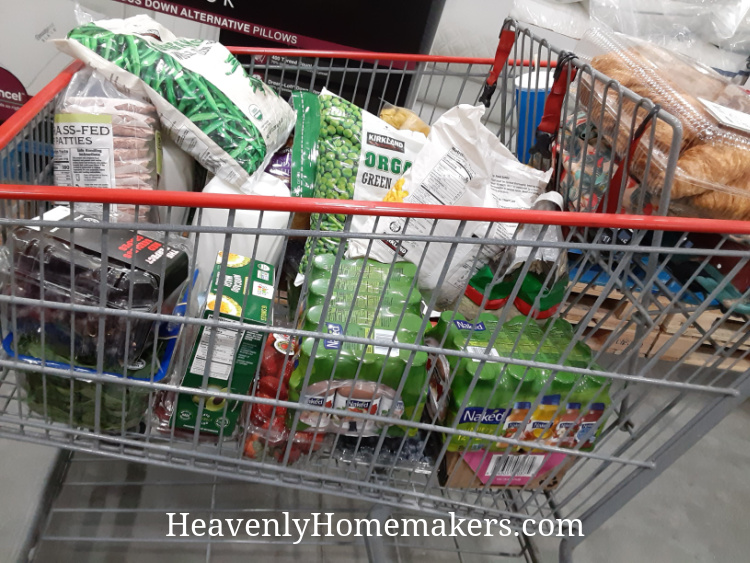
A mix of organic and non-organic fruit here:
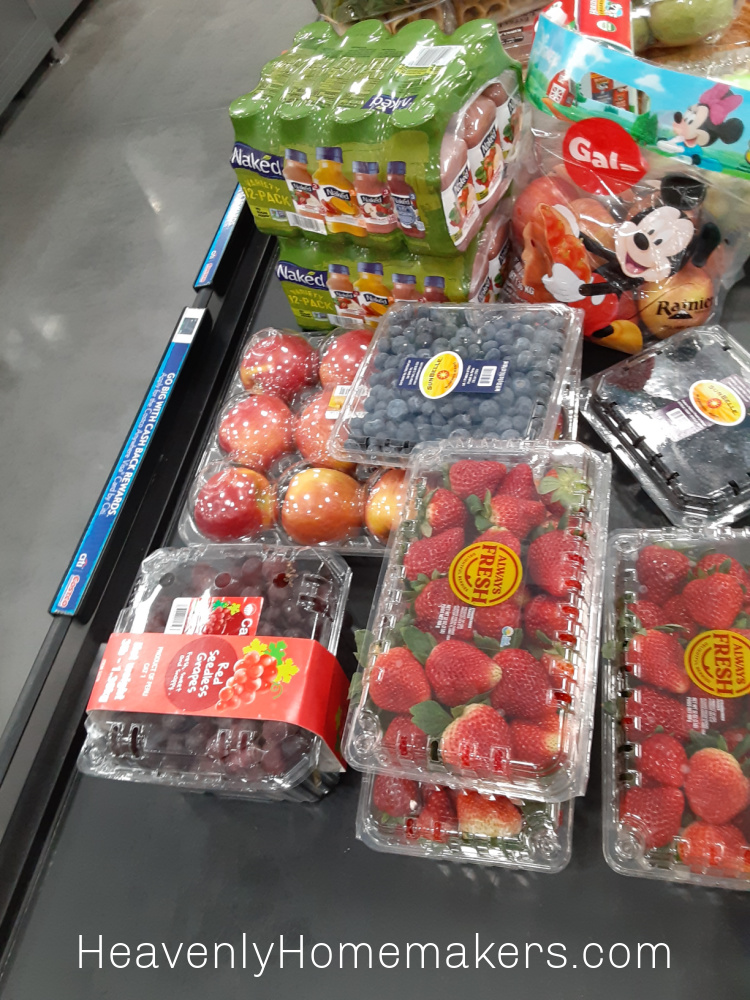
Do I Still Buy Organic Food?
In summary, sometimes I do and sometimes I don’t. Here is some explanation behind my food purchasing decisions:
1. I need to keep to our $1,200/month grocery budget.
With 10 people to feed three meals every day and a rise in grocery prices, we considered increasing our grocery budget to $1,500/month. This would still only be $5/day/person which is very reasonable. But we’re hoping to maintain our budget as it is at $1,200/month, which is $4/person/day.
This decision was made because I knew it was possible. I CAN creatively and carefully keep our budget at this number. And I wanted to challenge myself to do it. So far, so good.
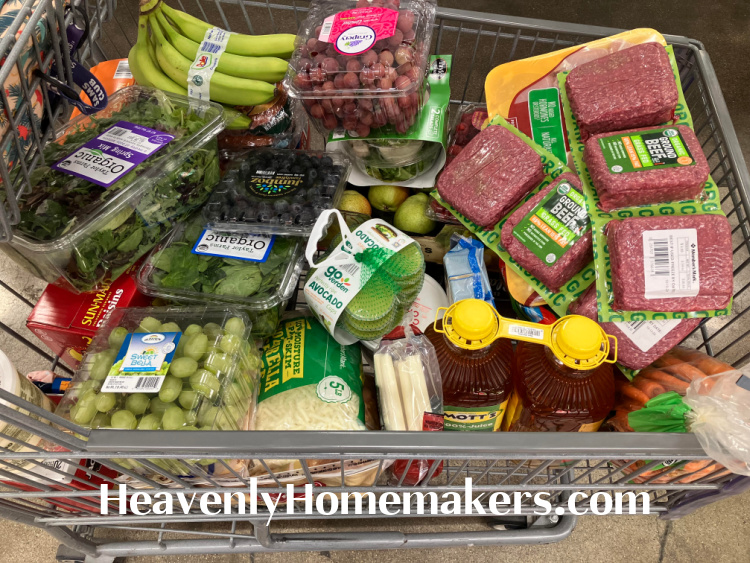
2. I decided to stop overthinking.
This has been tough because I KNOW that organic, grass-fed beef is much, much better than other beef. I know that free-range chicken is better. I know that organic produce is better.
And I also know that all of those cost much more. (Wait, not all. But most.)
If I think too hard about any of this, I feel guilty that I’m not spending time finding allllll the best sources for meat and produce, and that I’m not spending any amount of extra money that it takes to eat the best of the best.
Y’all, I’d be spending $2,500/month if I bought everything organic, grass-fed, and free-range.
Instead, I watch for sales on meat at regular grocery stores and we buy it, cook it, and eat it. I buy some organic produce when the price is right, and I watch for sales on the “regular” produce and eat it without guilt.
IT IS STILL MEAT. It is still fruit and vegetables. It is still real food. It still nourishes us. I have to be at peace with this and God is faithful to provide that peace.
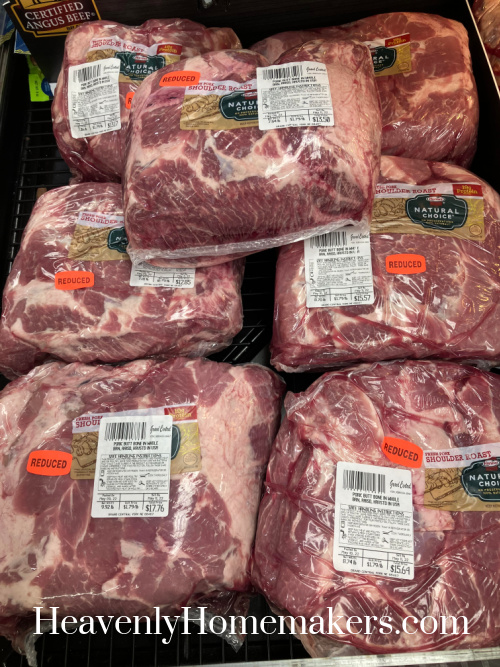
3. My days are very full and my priorities have shifted.
I work to put real food on the table that is wholesome and nourishing. But with this many little ones to care for right now (currently seven kids ages newborn to 9), we also have to compromise sometimes with boxed mac and cheese – the kind in a blue box. We eat fruits and vegetables with every meal, even if it’s frozen pizza. And most of our meals still look like what you see below because I’ve learned to make very simple dishes that don’t take long to prepare.
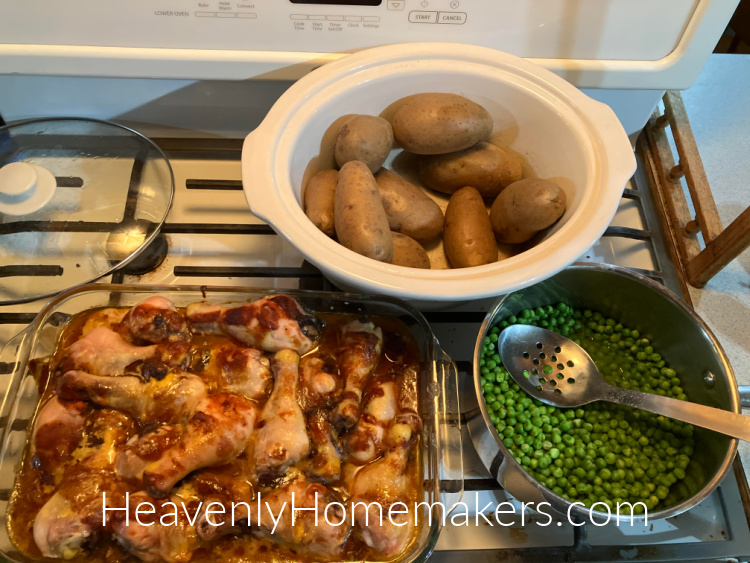
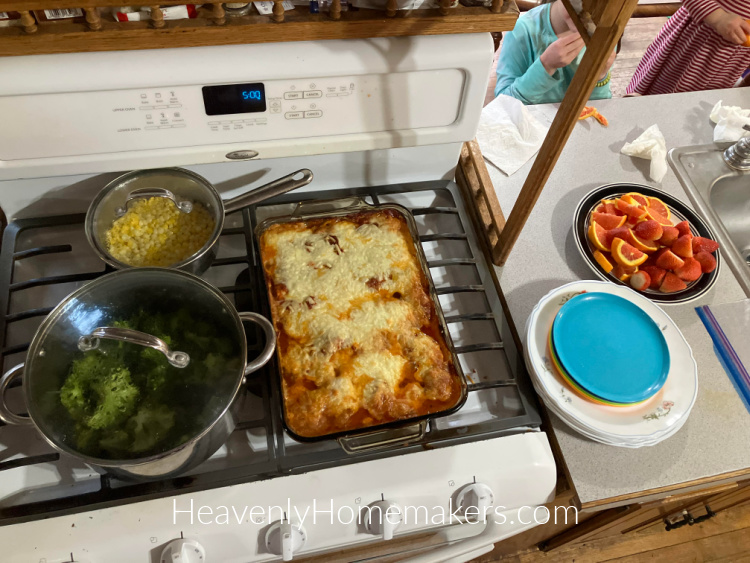
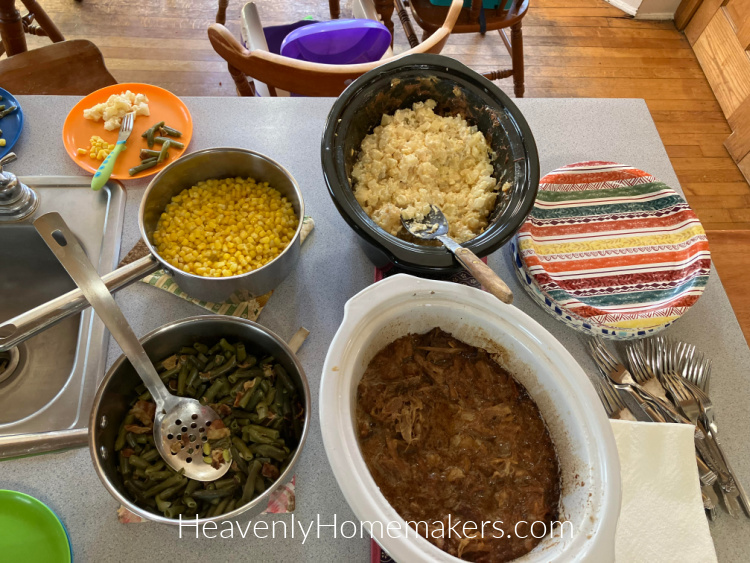
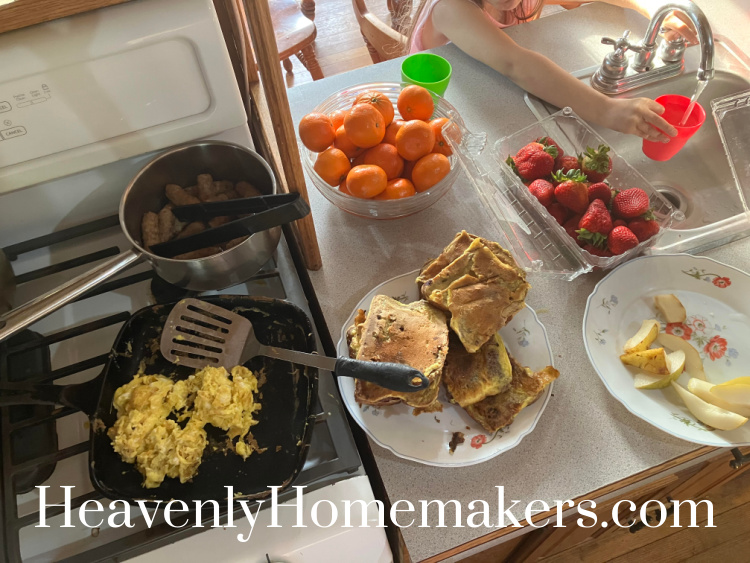
What do I still buy organic?
- Fresh spinach and greens – because it’s actually the same price or cheaper than regular
- Any produce I find that is only slightly more expensive than regular
- Milk from a farm because we have a good source that we’ve been using for years
- Eggs from our neighbor
- Meat only if I find a good price – which happens very rarely – so this barely makes the list
Otherwise, I focus on feeding us:
- Real food as much as possible – meat, veggies, fruit, bread, milk, cheese, butter, peanut butter
- Healthy fats – continuing to avoid hydrogenated oils and shortenings
- Fruits and veggies at every meal
- Low-sugar homemade baked goods
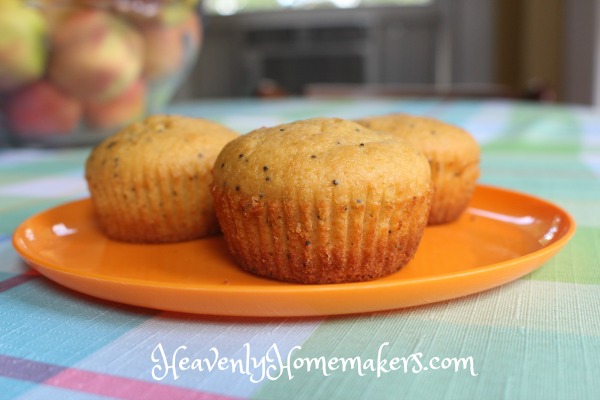
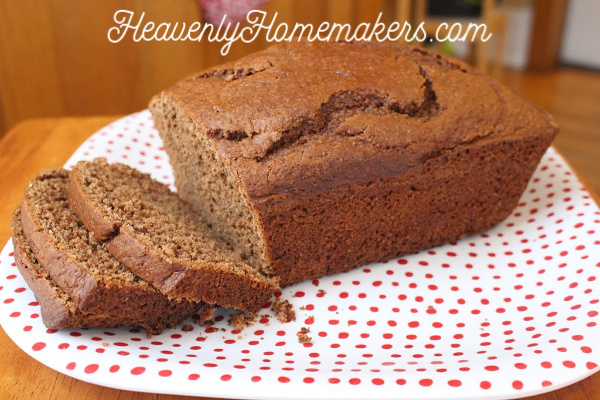
~~~~~~~~~~~~~~~~~~~~~~~~~~~~~~~~~~~~~~
You can see some examples of meals we eat here, here, and here.
~~~~~~~~~~~~~~~~~~~~~~~~~~~~~~~~~~~~~~
What are your current thoughts on eating organic foods?

